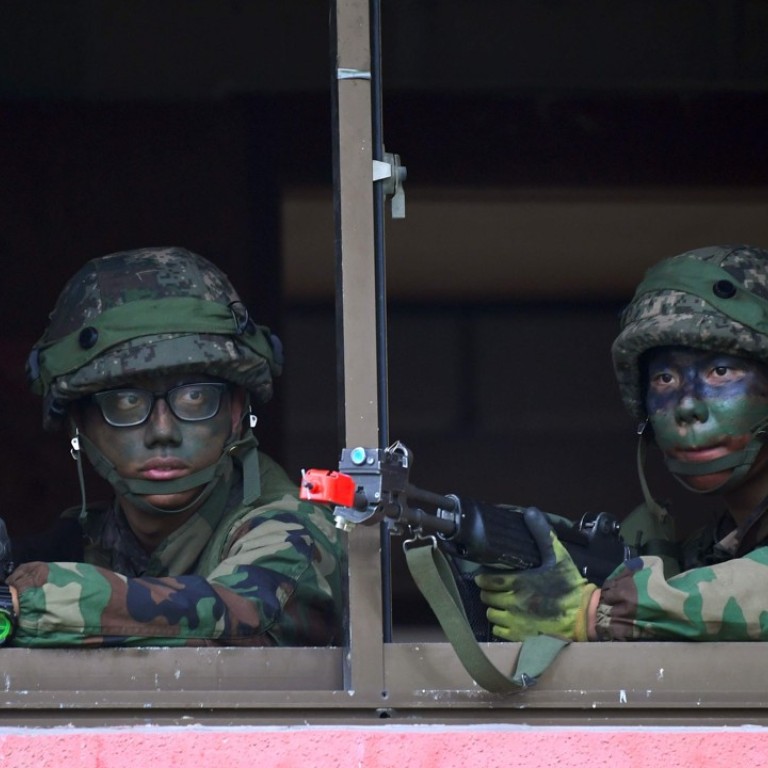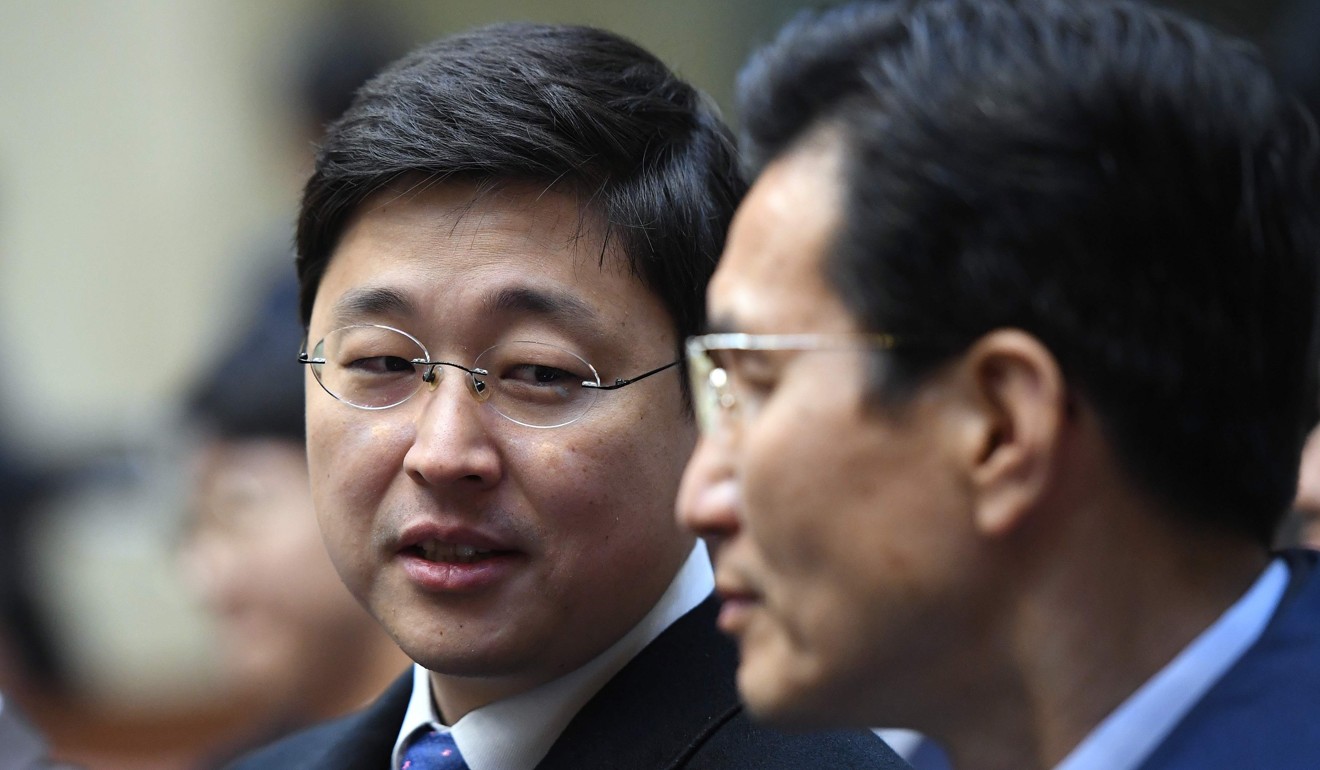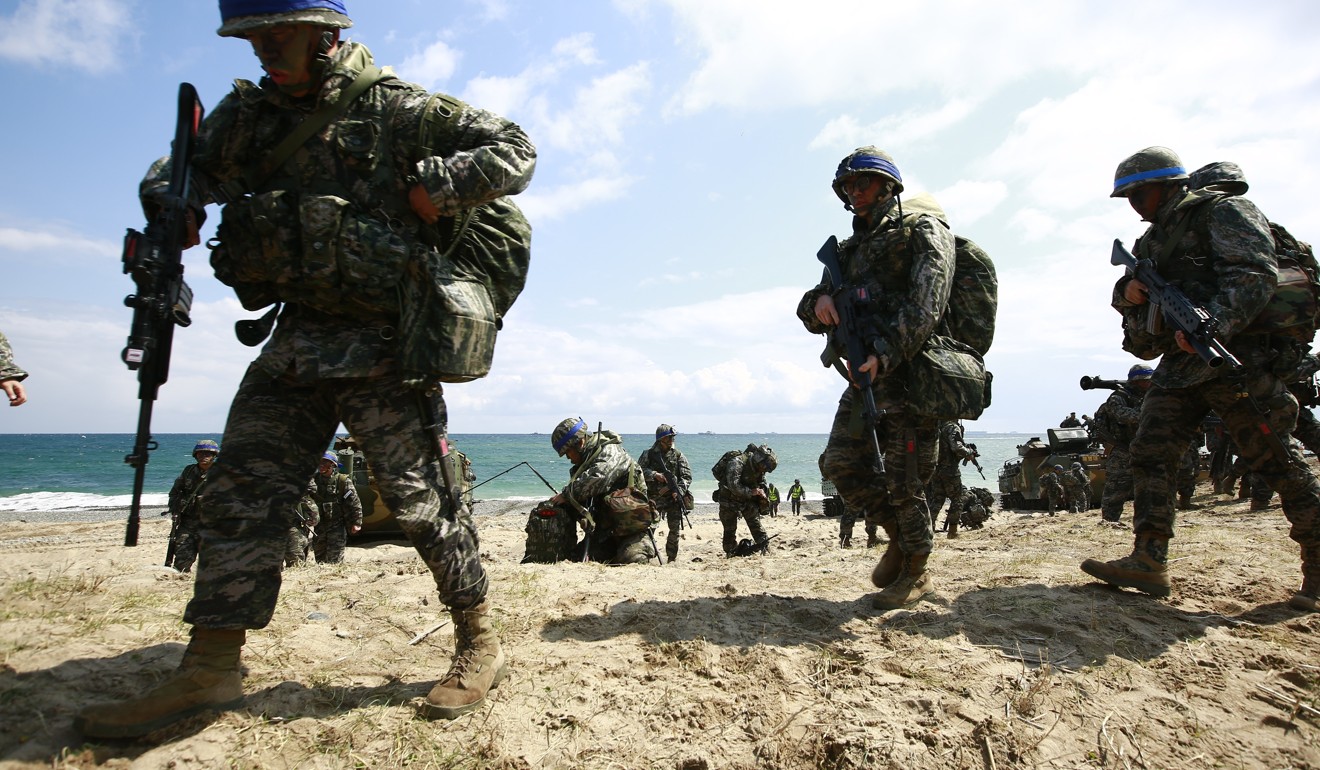
South Korean conscientious objectors will be able to avoid military service after Supreme Court ruling
- Those refusing the call-up had faced prison time – around 19,000 conscientious objectors have been jailed since 1950
- The social implications of the South’s military service are also enormous – men must interrupt or delay either their education or their careers to comply
South Korea’s top court ruled on Thursday that South Korean men can legally reject their mandatory military service on conscientious or religious grounds without punishment.
The landmark ruling is expected to affect the cases of more than 930 conscientious objectors on trial. Hundreds of young South Korean men, mostly Jehovah’s Witnesses, are imprisoned every year for refusing to serve in the military.
All able-bodied South Korean men must serve about two years in the military under a conscription system aimed at coping with potential aggression from North Korea. The court broke with its own 2004 verdict that rejecting military service because of religious faith was illegal, saying at the time that confrontation with the North made South Korea’s draft an indisputable necessity.

The ruling was great news for Jehovah’s Witnesses and others who call for improved individual rights and freedom of opinion in South Korea. But many conservatives are likely to criticise it, saying it inadequately considers the North Korean threat.
When South Korea’s Constitutional Court ruled in June that the government must provide alternative social service for conscientious objectors by 2019, a heated debate erupted over whether it is the proper time for such a measure because North Korea’s nuclear threat remains unchanged. There are also worries that some might exploit alternative service to evade the draft.
On Thursday, the Supreme Court said it quashed a lower court’s sentencing of a conscientious objector to 18 months in prison.
It is the majority opinion of the Supreme Court that conscientious objection is … a valid reason
It said it ordered the lower court to review its earlier verdict. Supreme Court officials said there is little chance the lower court would not abide by the decision.
The majority opinion of a panel of Supreme Court judges is that “conscientious objection of military duty … can be a valid reason” to avoid military service, the top court said in a statement.
“Forcing a military duty … with criminal punishment or other punitive measures is an excessive restraint of freedom of conscience,” the majority opinion read. “Free democracy can have its legitimacy when it tolerates and embraces minorities though it is run by the principle of majority rule.”
Supreme Court officials said lower courts are not officially required to make the same ruling when they handle other cases of conscientious objections, but they are widely expected to do so.
Since the 1950-53 Korean war, South Korea has sent about 19,350 Jehovah’s Witnesses to prison for refusing to serve in the military. In recent years, about 500-600 Jehovah’s Witnesses went to prison every year and spent 18 months behind bars on average. According to the group and the Supreme Court, Thursday’s ruling will not apply to 96 Jehovah’s Witnesses currently in prison.
Japanese steel giant ordered to compensate South Koreans forced to work under colonial rule
The South Korean office of Jehovah’s Witnesses hailed the ruling as a “historic verdict that will be remembered for a long time for showing the matureness of the country’s human rights awareness.”
The conscientious objector whose case triggered the ruling, Oh Seung-hun, told reporters that he also hopes for “positive rulings” on the 930 pending cases involving fellow Jehovah’s Witnesses.
“This verdict was possible thanks to the patience of my predecessors and colleagues totalling some 20,000 people,” Oh said, according to Yonhap news agency. Oh, who hadn’t been sent to prison, said he would try an alternative form of civil service.
South Korea’s Defense Ministry has yet to come up with details on alternative service. In 2007 it considered allowing conscientious objectors to work in special hospitals and care for people with disabilities or dementia.

Seoul’s armed forces rely heavily on conscription, and military service often involves postings to front-line positions on the border with the North.
In May 2010, a North Korean submarine torpedoed the South Korean naval vessel Cheonan, killing 46 sailors including 16 who were on military service. Pyongyang denies responsibility.
In November the same year, the North shelled a South Korean border island, killing two marines – both of them young conscripts.
The social implications of the South’s military service are also enormous – men must interrupt or delay either their education or their careers to comply, with Tottenham striker Son Heung-min a high-profile recent example.
He only secured an exemption – avoiding a potentially ruinous career break – by winning gold at this year’s Asian Games in Indonesia.

.png?itok=arIb17P0)